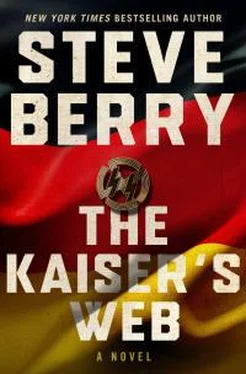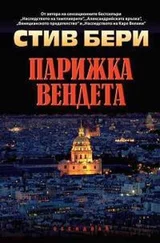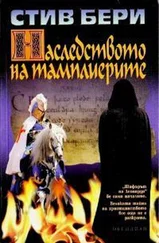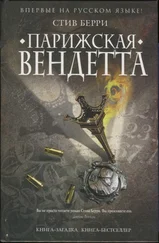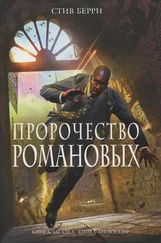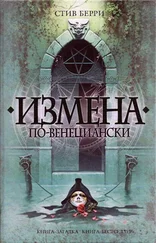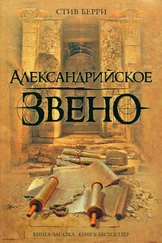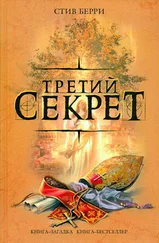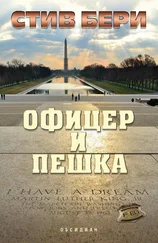“Assuming it even happened.”
“Precisely.”
He did not for a moment believe the Holocaust never occurred. He realized, though, that many, like the fat judge sitting across from him, fervently thought Jewish extermination was, if anything, small scale or nonexistent, a myth created by the Allies to deflate postwar German nationalism. He’d actually read some of Klein’s legal opinions, rendered over the past twenty-four years he’d served on the local court, where he once called the Holocaust a “historical thesis,” and lamented that Germany must still be forced to atone while other countries slaughtered people with no consequences.
“Your defendant in the coming trial is a respectable man,” he said. “His political convictions are matters of the heart. He is no terrorist. No Nazi.”
“So I am told,” Klein said, with an appraising stare. “May I inquire as to your particular interest?”
“Votes, Judge. There is a large segment of the population that labels this trial an injustice. Nations all around the world have free speech. We proclaim the same, yet routinely censor the thoughts and feelings of many Germans, this defendant being a prime example. He was simply expressing his opinion.”
Klein did not respond, and the room lapsed to quiet. He knew that the judge had taken a late supper, alone, in a hotel nearby, then had been secretly brought to the castle. Privacy was essential. The last thing either of them needed was a suspicious reporter lurking around.
“I have followed your campaign with great interest,” Klein said. “Your words make sense.”
Exactly what he wanted to hear. “I need your assistance. Your defendant must be freed. Make a statement with your decision. Draw a line. I am told that your reversal rate is less than one-half of one percent. That’s admirable. Make this decision appellate-proof. Be clever with your words, but don’t mince the message.”
“That could start riots.”
“And the problem?”
Klein registered his understanding with a smile. “Unrest that you would oppose in action, but not in principle. An appeal to both ends of the spectrum.”
“And to the all-important middle, Judge. At present, the race for control of the Bundestag is far too close. It will be the middle-ground voter who decides who prevails. The German that, in his heart, believes as we do, but would never voice the same. That German, though, can speak volumes in the voting booth. There, only God knows how they vote. My prediction is they will do as we say, ‘Germany for Germans. Foreigners out.’” He reached to the table beside his chair and grabbed a folder. His staff had done an excellent job in preparation. Their assumptions about Waltraud Klein had proven correct. “Are you aware of other criminal cases presently pending?”
“Similar to my defendant?”
He nodded, then opened the folder and explained.
Six youths in Stuttgart had beaten a man to death in his home with a baseball bat. He was a twenty-year resident of Germany, but a Croat by birth. They considered him an “inferior element.” All six were about to be tried for murder.
Three men torched an apartment building in a village near the Czech border, members of an ultra-right group that targeted asylum seekers. A ten-year-old girl was horribly mutilated in the fire. All three were about to be tried for arson. The judge in that trial had already dismissed attempted murder charges.
In a tiny village southwest of Berlin the most grievous incident of all had occurred. Seventy-three Africans were moved by the government into an abandoned building. The local villagers were openly opposed to the action. Written protests were filed. Meetings held. Letters posted. All to no avail. Fearing violence, guards were stationed at the building but inexplicably one night, the previous April, while guards were not present, Molotov cocktails came through the windows. The local fire brigade took twenty minutes to respond and, when they finally arrived, did nothing more than prevent the blaze from spreading, allowing the building to burn completely to the ground. None of the Africans were hurt, and they were subsequently moved to another town, but two locals were eventually charged with arson. Their trial started in four weeks.
“I am familiar with the last situation,” Klein said. “I am told the defendants have alibis. Good ones.”
“True. So acquittals should be easy.”
“But the unrest would continue?”
“That is the idea. Then, after the election, we can turn our attention to all these ‘asylum seekers’ and resolve all conflict with finality.”
Klein folded his fleshy hands across his lap. He knew the man’s background. A nothing lawyer who’d managed to make it to the bench through a variety of political cronies who saw in him a personality they could manipulate.
“The Beer Hall Putsch of 1923 all over again,” Klein said.
Klein was making all the correct connections.
Pohl needed him to identify with the past. Fanatics required linkage. It somehow gave legitimacy to what may otherwise be, at least for them, a bold assertion. He knew that, for some, the putsch of November 9, 1923, continued to be remembered with an almost religious fervor—when a young Hitler, Göring, Himmler, and Hess led three thousand storm troopers to the War Ministry in Munich trying to overthrow the Bavarian government. Police ultimately confronted them and shots were fired. Göring was hit and Hitler dislocated his shoulder. He was subsequently arrested and sentenced to five years in prison, serving only one, after another judge molded the law to suit his own political sympathies.
“You, too, have an opportunity to participate in the infancy of something great,” he said. “Something special for our nation.”
“I am not a Nazi,” Klein declared.
He almost smiled. Many believed what the Nazis had preached, though few wanted the label. “Neither am I. The Nazis are gone. Their movement failed. There shall be no resurrection. But that does not mean some of their thoughts are not useful.”
“What specifically would you have me do?”
A smile curled on his lips.
“Many things, Judge. Many important things.”
CHAPTER NINETEEN
LOS ARANA, CHILE
6:00 P.M.
Cotton and Cassiopeia were led from the café at gunpoint and driven a few miles out of town to a Tyrolean chalet, engulfed by dense woods, that seemed straight out of Bavaria. He recalled his previous experiences with the local law enforcement. The Carabineros de Chile were of long standing, with a national jurisdiction and a mandate to maintain order. Twice in the past he’d worked with their Ministry of Public Security and found everyone to be highly proficient and totally professional. But that was in Santiago. He was now six hundred miles to the south, in a rural region with a history of German influence dating back to the 19th century.
“Commander Malone. Senorita Vitt. Please, take a seat.”
Their host stood in the center of a great room, its ceiling open to the roof of the A-framed structure. He was dressed in a dark business suit cut close in the European style. His black hair was long and wavy and gleamed from heavy brushing. He was lean and hard looking with a patrician nose, mustache, and small hands. The two carabineros quickly withdrew, which telegraphed that this man was in charge.
“I am Juan Vergara, deputy minister of investigations for Chile. I apologize for the intrusion on your dinner. But I am wondering why an American Justice Department lawyer and a billionaire from France are in my country, without my knowledge, with weapons.”
His English was clear and nearly devoid of an accent. There was a charm to his manner that made Cotton question the strong-arm tactics.
Читать дальше
